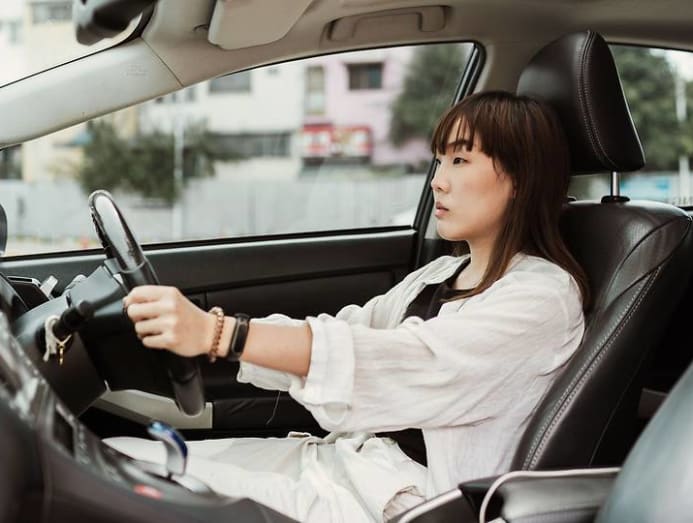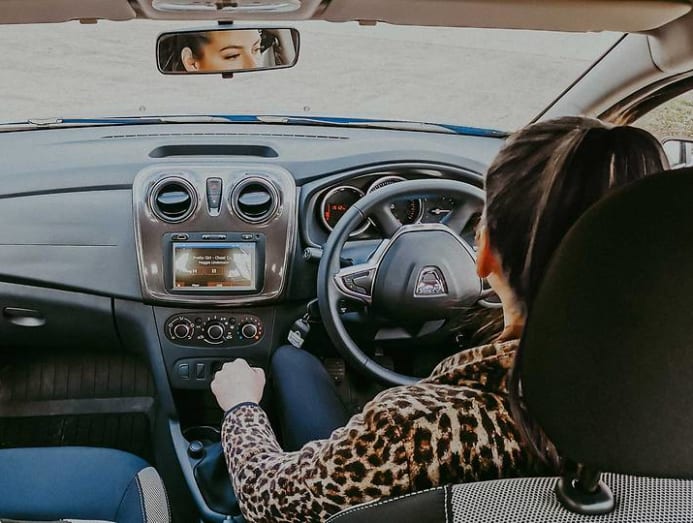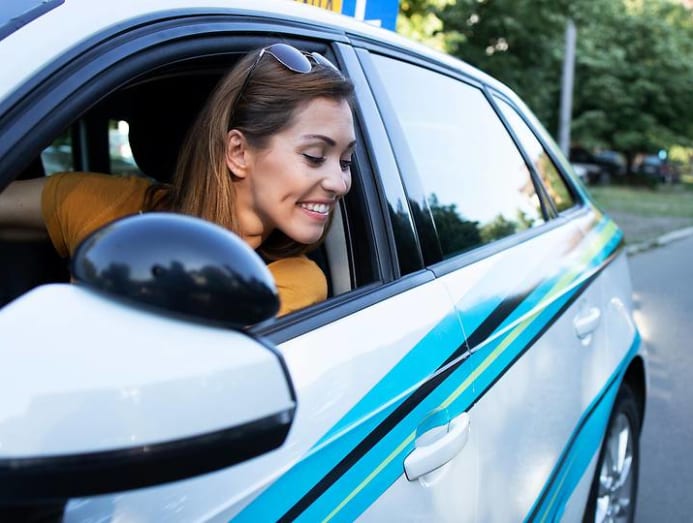Are women really bad drivers? How did we get this unfortunate reputation?
Women and their questionable competence behind the wheel: CNA Luxury’s resident motoring journalist Jamie Nonis attempts to debunk the trope – she’s tired of it.

(Photo: Freepik)
You know the one. That annoying car in front of you in the left-most lane crawling at a pace that might make a snail blush.
That annoying car in front of you taking forever to filter right even when traffic is all-clear.
That annoying car in front of you doing its thirteenth three-point turn trying to get out of a parking spot that’s to blame for the quickly-forming line of cars trying to get into the carpark.
“Must be a woman driver,” you think to yourself or say aloud to other (presumably male) passengers onboard while waiting for what feels like an eternity – and when you finally overtake them, you snap your head back to confirm your presumption.

Even I, whose IC reads ‘F’ under the category for ‘Sex’, find myself doing this.
When it comes to the skill of driving, does the ‘F’ stand for fail, I wonder?
Speaking of, the second example above was the very reason I was slapped with an immediate fail the moment my car departed the Ubi driving centre on my first attempt at getting my licence exactly 20 years ago, by the way.
READ: 'Women can, too': Malaysian female heavyweight bike riders defy stereotypes
On my second try, though, I made it a point to wear a push-up bra under a tighter tee and passed with flying colours. In fact, the male tester kept heaping praises mid-way through the test, spouting comments like “I’ve never felt so safe with a student during a driving test before”, and I knew I had it in the bag.
Not to push the feminist movement back a decade (or six) but, there must be some perks to help equalise some of the inequality intrinsic to the girl gig, I figure.
Now the question regarding females and their questionable competence behind the wheel: Are women really bad drivers? And how did we even get this bad rap?

Is it an unfair stereotype embossed into our collective consciousness by uncharitable media narratives over decades? Or is it the product of our own personal experiences and of those adjacent to us? How is it even still a trope peddled by less inspired comedians?
‘MY WIFE’S A GOOD DRIVER, JUST BAD WITH DIRECTIONS’
So I posed this question to a table comprised of automotive industry professionals and fellow motoring journalists (all-male) at lunch one day.
“I would say my wife is a good driver, just bad with directions,” said one, whose significant other still gets significantly lost when driving solo to her mother-in-law’s (MIL) house – despite them being married 25 years and the MIL living at the same address since.
“I don't think it’s a guy/girl thing,” piped up the female corporate communications director of a German automotive brand. “Some people are just better at spatial recognition and some are better at directions because they are able to pay attention better.”
READ: Not just for men: Female collectors with a passion for sneakers, watches, whisky
“And it’s also how much you drive… Honestly, I’d rather be in a taxi than with a Grab driver,” the husband added.
“I feel women get spooked a lot quicker; that’s some of the women I know but I’ve seen some amazing women drivers as well,” offered the female director.

At a separate event, the group of editors at the table – all female this time – confirmed that fear was the number one reason for preferring to do all they could to avoid getting behind the wheel, despite having a licence.
“What if something happens and I damage the car?” said one veteran editor-in-chief of a luxury lifestyle magazine.
WE’RE JUST WIRED DIFFERENTLY
Countless studies and decades of research suggest that men’s spatial abilities are superior to women’s, thus often convincing us without argument that men are better at driving than women.
Interestingly, though, a 2019 study by Nature Scientific Reports found no disparity between male and female spatial abilities – just a difference in the way both genders approach such tasks (while still arriving at the same result for the most part).
Even if we accept the argument that men may have a genetic advantage when it comes to spatial skills impacting navigation and the like, do women actually deserve the “bad driver” label?

To answer the age-old conundrum, let’s first define the notion of “bad”. When it comes to driving, is it consigned to competence, skill or safety?
Take the common criticism of female drivers being slow: Slow to filter, driving slow on the right-most lane or even simply driving under the speed limit, for instance.
This is often attributed to women being timid and tentative. But that’s a matter of perspective. She could be a mum on a school run and transporting precious cargo she gave birth to, perhaps.
Seen another way, it could be a maternal instinct at play, suggesting cautiousness and safety-consciousness instead.
That’s certainly a virtue in contrast to the attributes commonly ascribed to men: Aggressive, impulsive, impatient and reckless, with a higher tendency to engage in risky behaviour on the roads such as speeding, drinking under the influence of alcohol and not wearing a safety belt.
READ: From livestreaming to e-sports: Witness the rise of female gamers in Singapore
Statistically-speaking, in fact, men do cause more road accidents than women – even after accounting for the fact that men typically chalk up more miles on average than women. And crashes involving male drivers are reportedly often more grievous than those caused by women at the wheel.
This is according to the large amounts of data collected by the Federal Bureau of Investigation (FBI), National Highway Traffic Safety Administration (NHTSA) and Insurance Institute for Highway Safety (IIHS) and many, many more organisations in the US and elsewhere.
A study by non-profit organisation IIHS, for example, found that twice as many men than women died in crashes in the 40-year period between 1975 and 2015.
Similarly, the NHTSA showed that nearly twice as many men die in speeding crashes than women in the 34 years or younger age bracket.
And when it comes to drink-driving, more men were also found to transgress, according to the FBI.
So, what’s going on?

Perhaps the widespread belief of the stereotype that men are indeed better drivers causes them to overestimate their purported superior spatial abilities – therefore rather paradoxically disproving the very notion.
So the next time you hear someone, especially a dude, disrespectfully utter “Must be a woman driver”, remind them of these unfortunate stats. Or just send them the link to this article.
And instead of allowing such comments to shake your confidence and shun getting behind the wheel in fear of confirming an unfair stereotype, you’d do well to adopt more of a heck-care attitude like the boys do.
READ: How women can deal with prejudice from other women at work (yes, it happens)
Women, in my observation, tend to care more about what people think. So less self-doubt, more self-trust. Because self-belief counts for more than science, if you ask me.
Just look at me now: From an immediate fail on my first driving test to becoming a motoring journalist for one of Asia’s top-ranking news media platforms.
Even though I still might take a little longer to filter right.





